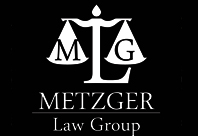Courts May Not Exclude Expert Testimony as Lacking in Adequate Foundation
by Raphael Metzger, Esq.
1. Introduction
A recent insightful article by one California litigator1 began with the following observation: “Several appellate decisions from various divisions within the Second Appellate District have excluded expert opinions citing lack of “foundation” for the expert’s opinion. (Geffcken v. D’Andrea (1996) 137 Cal.App.4th 1298; Dee v. PCS Property Management Inc. (2009) 174 Cal.App.4th 390 and Bozzi v. Nordstrom, Inc. (2010) 186 Cal.App.4th 755. These rulings pose a challenge for plaintiffs at all phases of trial preparation . . . .” This statement may well be the understatement of the year!
These decisions represent a disturbing trend among Superior Court judges to exclude case-critical expert testimony based on the perception that the expert’s opinion, although based on relevant facts and data, supposedly lacked an adequate foundation for the testimony to be admitted.
It is especially troubling that such exclusionary decisions, which inevitably result in the dismissal of plaintiffs’ cases, have been affirmed by appellate courts under the abuse of discretion standard. However, it is even more troubling and shameful that plaintiffs’ counsel have not argued in the trial courts and the courts of appeal that such decisions deprive plaintiffs of their right to jury trial, exceed judicial powers under the separation of powers doctrine, and exceed trial courts’ statutory authority.
The purpose of this article is to provide plaintiffs’ counsel with the legal authorities necessary to persuade judges that they cannot lawfully make such decisions to the detriment of our clients.
2. Background
For the past 17 years federal courts have been excluding essential expert testimony under Daubert v. Merrell Dow Pharmaceuticals, Inc. (1993) 509 U.S. 579, 113 S.Ct. 2786, assuring that Plaintiffs’ cases whose success is dependent on expert testimony will succumb to a miserable death. Our Supreme Court has thus far rejected all attempts by defense counsel to import Daubert to California. Thus, in People v. Leahy (1994) 8 Cal.4th 587, the Court expressly rejected the federal Daubert standard in California. Likewise, in Roberti v. Andy’s Termite & Pest Control, Inc. (2003) 113 Cal.App.4th 893, one appellate panel held that trial courts may not engage in a Daubert analysis or any other threshold evidentiary analysis in determining whether an expert’s opinion is admissible.
Thus, the recent exclusionary decisions of some courts has not been approved by our Supreme Court.
3. Three Basic Principles
Can a trial judge exclude case-critical expert testimony based on his or her own personal assessment that the expert’s testimony lacks an adequate foundation? To answer this question, we must consider three basic principles of California evidence law.
The first principle is that courts may not deprive plaintiffs of their right to have a jury of their peers to decide factual issues, including the weight and credence to be accorded to expert testimony. Cal. Const., Art. I, Section 16.
The second principle is that courts may not intrude upon the constitutional reservation to the Legislature of the right to make rules of evidence. California Court Reporters v. Judicial Council (1995) 39 Cal.App.4th 15, 22.
The third principle is that courts may not violate the statutory proscription barring common law exclusionary rules of evidence. Cal. Evid. Code § 351.
Together, as will be shown, these three principles preclude trial and appellate courts from excluding expert testimony that has some foundation, merely because a judge is of the view that the foundation for the expert’s opinion is for some reason inadequate or insufficient.
4. The Constitutional Right to Jury Trial
The Seventh Amendment of the U.S. Constitution states: “In Suits at common law, where the value in controversy shall exceed twenty dollars, the right of trial by jury shall be preserved, and no fact tried by a jury, shall be otherwise reexamined in any Court of the United States, than according to the rules of the common law.”
The right to a jury trial under the Seventh Amendment permits expert opinion to have the force of fact when it is based on facts which sustain it. Talley v. Mitchell (6th Cir. 1960) 275 F.2d 244. Thus, under the Seventh Amendment a plaintiff is entitled to have a jury hear testimony of expert witnesses as well as testimony of fact witnesses and base its verdict thereon.
The Arizona Supreme Court held that the right to jury trial precludes a trial court from determining the reliability and credibility of a qualified expert as a prerequisite to submission of the expert’s opinions to a jury. Kaplan v. Superior Court (1971) 15 Cal.App.3d 785, reversed, 6 Cal.3d 150Evid. Code § 351 clearly preclude judges from excluding relevant evidence except when a statute specifically authorizes such exclusion. Since no provision of the Evidence Code authorizes the exclusion of relevant expert testimony for lack of an adequate foundation, California trial courts have no authority exclude expert testimony on this basis.
In Id. at 467. The Court concluded that the expert’s testimony was “offered to show that the common possession by youthful glue-sniffers and by plaintiffs of two of the same symptoms, namely, numbness and tremors of the extremities, indicated that the cause of plaintiffs’ illness was toluene poisoning.” The Court found that the testimony was relevant and, pursuant to Evid. Code §352 Allen v. Superior Court (1984) 151 Cal.App.3d 447 People v. Guntert (1981) 126 Cal.App.3d Supp. 1.
1 Carolin Shining, "Excluding expert witness testimony after Lockheed II," Advocate 37(10): 68-73 (October 2010).




